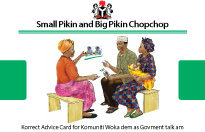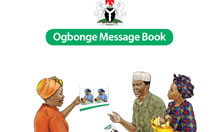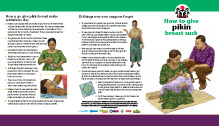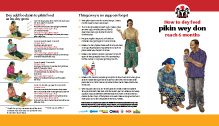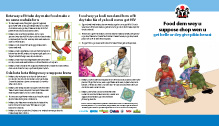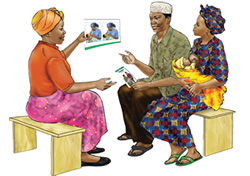
Studies in Nigeria indicate a high prevalence of undernutrition among under-five children, including a 41% stunting rate and a 14% wasting rate (NDHS 2008, MICS 2011). These statistics are closely associated with inappropriate breastfeeding and complementary feeding practices. Since knowledge about feeding young children generally derives from family beliefs, community practices, and information given by health workers, there is a need to empower health workers and community volunteers to provide caregivers with the relevant information and support to achieve optimal nutrition for their children. The Nigeria Community and Facility Infant and Young Child Feeding (IYCF) Package is a necessary tool to ensure uniform training and information sharing throughout Nigeria.
This package of materials was adapted from the UNICEF and WHO generic global document and the 2010 National Recommendations on IYCF in the Context of HIV following a series of technical working group meetings comprising all relevant government agencies, parastatals, development partners, and NGOs. The Nutrition Division of the Federal Ministry of Health led the process with financial support from UNICEF, the (former) IYCN Project, the SPRING Project, and the WINNN project. The package has been finalized in English and translated into five Nigerian languages—Hausa, Idoma, Igbo, Tiv, and Yoruba. Each translation was field tested and reviewed before finalization.
The Facility and Community IYCF Packages each include a trainer’s manual with appendices, pictorial training aids for training community health workers, participant materials, a set of slides for projection during training, a set of 31 IYCF counseling cards, a key messages booklet, and three take-home brochures. Both packages provide updated technical information on breastfeeding, complementary feeding, and IYCF in the context of HIV and teach basic skills, such as listening and learning skills, confidence-building skills, and support skills. Employing various methodologies—including lectures, demonstrations, clinical practice, and small-group discussions—these simple-to-use packages enable trainees to develop their skills in the classroom before practicing them with mothers and babies in wards, clinics, or other locations in their communities.
If you are unable to download these files, please complete a feedback form including your mailing address, and SPRING will send you copies of the files.
